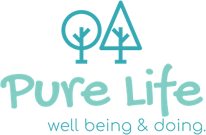
In our daily lives we often feel overwhelmed. Thoughts that pop up all at once create a mental load that is not easy to overcome. Excess tasks we have accumulated along the way, mortgages, bank loans, shopping to do, the doctor’s appointment to make – just like the piles of pages on our desktop and the piles of dishes in the kitchen sink – so our consciousness tends to accumulate and accumulate until it is not easy to deal with. Pay a price.
This load creates in us a feeling of lack of control. Slowly we drown in the confusion of thoughts and lose the clear vision and thus also find it difficult to cope with the tasks and tasks we have to perform. We find it difficult to focus and deal with life and of course to enjoy it as well. If you are also familiar with this phenomenon, then you will know that “cleaning their consciousness” from loads is a non-stop job, like keeping fit.
Here are some things you can do to keep your head clean and calm:
1. Clear the physical space – when there is a mess around, there will probably be a mess in the head as well. What to start with? Try to start from a specific area. Start in the kitchen, then in the bedroom and finally in the study. Be brave in the sorting work – throw away for recycling or trash what you really do not need anymore, sure there are quite a few. This way you can create a more pleasant and inviting space and also much less crowded.
2. Keep a schedule in your diary – we do not have to put everything on our heads. Write in your diary your tasks, clinic appointments, appointments, deadlines for paying the bills. Once everything is written, you will not have to panic at the thought of forgetting something. Just keep an eye on the diary on a daily basis.
3. Get out into the fresh air – there is something in nature and the open natural environment that makes our head cleanse naturally. We listen to silence, breathe the air and cleanse and the thought becomes clear and clear. Our thoughts also become more positive. You should go out and just walk without any need to get anywhere, for a change.
4. Disconnect from technology for a period of time – the desire to be constantly updated on what is happening in the environment and in the world has become strong in our society. So it is true that we are accessible and that the information is accessible to us, but in some situations it becomes a mental burden and causes a load to be created. Allow yourself to disconnect from the rapid flow of information and the need to be updated at any given moment. Not all of the content that comes to us is really important to our day-to-day conduct. Clean your head of those “toxins” and let the world run its course. Things will happen even without you being aware of them and what really matters will come to you at some point anyway.
5. Live minimally – our culture teaches us that buying more and more will make us happy. In practice, even if we buy more products and services we are waiting to understand that it actually creates more burden on us. Why? Because more products will pile up for us in the closet, in the kitchen, in the drawers under the sink, in the linen box and in the bag and so without us noticing, we have created an environment full of stimuli and items that we do not even remember buying. What should a person have? Not much. Just a little bit of everything. There is no need to often replace what we have for something that meets the definition of “new”. Learn to settle for a little and shrink and surprisingly – it will also clear your head from the hustle and bustle. It turns out that tidying up a drawer in a dresser makes it happier than going to the mall to buy another product we don’t really need. We are filled with a good feeling of satisfaction and we have a desire to continue. Think for yourself – what is really more important to me than what I have? What do I owe or really want to leave? You will find that the majority does not fall into this category. It really works!
6. Avoid doing too much – if there is a strong feeling of overload, a sign that we have reached the moment we need to tell ourselves to do less. So while maybe we have to go to work or study, raise the kids, do laundry and pay bills. But meeting friends often can be reduced, go shopping, do not have to be present at every meeting or event. Make the priorities and decide where it is important for you to go and where it is really important to be present.
7. Talk about it with others – Sometimes the load we experience is not just ours, nor should it be left deep in the stomach. Share your thoughts and feelings so you can see things from a different angle. Friends, family or a professional can give additional perspectives and sometimes even dispel the sense of control and uncertainty we experience and suggest other ways to deal with the situation.
8. Put the other in the center – So it is true that our main goal is to put ourselves in the center, but sometimes it is precisely the diversion of attention to the other, his needs and mental well-being can do just that for us. how? It does not have to be done through great deeds. Smile at others more, help the old woman carry the shopping to the apartment, stop to treat an injured animal on the road, donate to a person or organization in need of financial support. Good deeds release the energies of the bride and compassion that help to lower the barriers between us and the world and so as a magic way we will feel more open and positive and much less burdened and worn out.
9. Pay attention to each task on its own – even if you are champions at performing multiple tasks at the same time, try to focus on one thing at a time. The “cow cow” method works better when we are busy. The load and multiple tasks do not always allow us to “be” all of us at a given moment and so our performance drops significantly. Sometimes it can even hurt our goals and clear vision of where we want to go.
10. Do nothing – wow, this is not a simple one. We are used to doing something at any given moment. Being in motion, in doing, in performing tasks, while running thoughts like on a highway. We run from one experience to another, without having the time to process, stop, feel. When we feel overwhelmed, we should do what we fear most of all – stop. Breathe. Listen to ourselves. Take a break and try to figure out where we are on the path we have planned for ourselves. Ask yourself – “Why do I do what I do? For what are all these tasks I perform? Where will it get me? Do I even want to get there? Does it do me any good or do I try to please?”. Self-observation is critical precisely at times when we feel overwhelmed and is essential for the way forward. Maybe it’s time to change course? Only if we really look can we understand what the next right step is.



